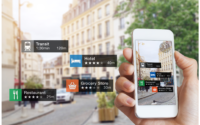
Quantum Computing for the Next Generation of Computer Scientists and Researchers
Travis Humble is a distinguished scientist and director of the Quantum Computing Institute at Oak Ridge National Laboratory. The institute is a lab-wide organization that brings together all of ORNL’s capabilities to address the development of quantum computers. Humble is also an academic, holding a joint faculty appointment at the University of Tennessee, where he […]
















